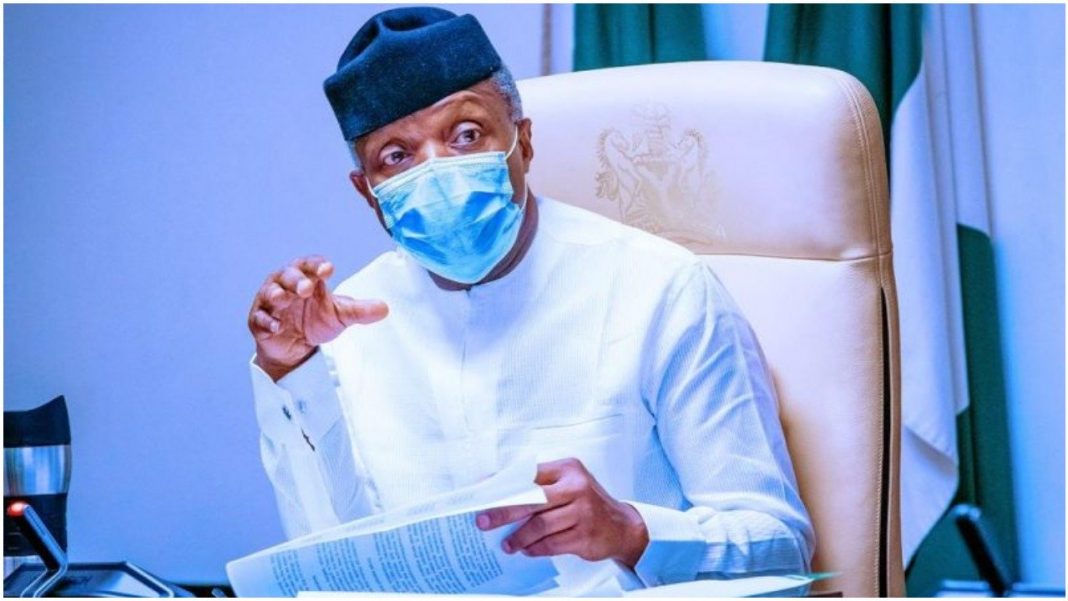Economy
Economic Recovery Plan: United Nations launches $248.48 million programme

The United Nations on Monday launched a $248.48 million programme to support the Economic Sustainability Plan of the President Muhammadu Buhari administration.
Tagged the Nigeria UN Plus Offer for Socio-Economic Recovery 2020-2022, the programme aims to support the administration’s initiative, which was designed as a response to the economic challenges of the COVID-19 pandemic.
The objectives of the N2.3 trillion Economic Recovery Plan, which the Federal Executive Council approved in June this year, include “reducing the impact of the pandemic on the economy and people, integrating human rights in the macro-economic response, tackling pre-existing inequalities, protecting and creating jobs to improve social welfare and put the economy on part towards achieving the sustainable development goals.”
The UN Offer hinges on four pillars of strengthening the health system, protecting people, macroeconomic stability and economic recovery as well as social cohesion and community resilience.
While the health pillar has of 55.5% ($137.8million) in support of controlling the spread of pandemic, protecting people and economic recovery pillars account for roughly 21.5% ($53.3million) and 12.3% ($30.7million), respectively.
The package also has 10.7% ($26.6million) for interventions to promote social cohesion.
The Nigeria UN Plus offer document states that “the amounts indicated are estimates,” adding that “while discussions with donors are ongoing, donors have yet to confirm their commitment in most cases.”
Speaking at the launch of the programme, Nigeria’s Vice President, Prof. Yemi Osinbajo, said that the donors and the UN in thinking through the programme to support Nigeria was a demonstration of the kind of kinship that grows with development partners.
He said: “This initiative is also very important because it mirrors our Economic Sustainability Plan and does so in excellent complement of our Economic Sustainability Plan.
“This is very helpful to us because we put together a plan that will cost us N2.3trillion; half of that is in form of loans and facilities.
“The other half, of course, is budgeted funds. “
Prof. Osinbajo said he was pleased that the huge gap in the financing of the Economic Sustainability Plan has been made up by the UN initiative.
“This is a thoughtful collaboration with us because it takes into account where we are unable to make up the financing and takes into account also a plan which we had developed.
“So, it is not, in any sense, an attempt by our supporters and friends to impose new ideas, or new trajectories upon us.
“We are all at one in the direction that we intend to go and we think that this is an excellent feat for all of our plans.”
Osinbajo said one of the critical issues of the Economic Sustainability Plan is social protection, which has become more urgent in the light of the COVID-19 pandemic, the lockdowns and disruptions that have taken place.
“The poor have become poorer and those who lived even marginally have fallen into deeper misery,” the Vice President said, adding that government was deeply committed to pursuing the Economic Sustainability Plan.
In her remarks, Deputy Secretary-General of the United Nations, Amina Mohammed, Nigeria’s former Minister of Environment, said the four pillars of intervention in the Nigeria-UN Plus Offer also line up with what the Nigerian government has in the Economic Sustainability Plan.
According to her, the UN would not want the COVID-19 pandemic does not take focus off Universal Health Coverage.
She said: “What we don’t want to see is that COVID takes away from what continues to be a challenge to the health system in addressing its disease burden.
“So, we will continue to make sure that child mortality and maternal mortality don’t lose the gains the Ministry of Health has had, and we don’t lose our immunization campaigns that we do.
“Even with the vaccine as we come for COVID, I’m sure that it is this very systems that we will use to deliver; otherwise there will be challenge to it.”
Ms Mohammed said the macroeconomic stability would be important in addressing the issue of social protection.
She also said strengthening social cohesion at the local level would critical to UN intervention since all efforts must be geared towards reaching people at the communities.
kindly donate to the work we do using our interim PAYPAL https://www.paypal.me/NewsWireNGR






